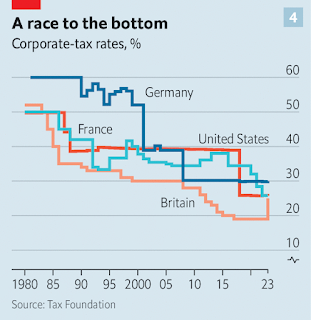Mar 30, 2024
The Economist on Xi Jinping's "grip" on the economy
Saifedean Ammous on the failed forecasts of Paul Samuelson's economics textbook
Mar 29, 2024
The Economist on the impact of lower interest rates and corporate tax rates on corporate profits (1989-2019)
Thomas Sowell on envy
Mar 28, 2024
Simon Handrahan on two keys to investing
Mar 27, 2024
The Economist: "technological breakthroughs take ages to pay off"
The Economist on bugs in generative AI
Mar 26, 2024
The Economist on the failure of Israel's invasion of Gaza
Mar 25, 2024
Fred Hickey on the lack of demand for generative AI
Derek Au on AI: "training is computation heavy, inferencing is computation light"
Sheldon Richman on the proposed bill to force a sale of TikTok
Tom Woods on his stingray experience
Robert F. Kennedy, Jr. on war China's foreign policy
Stanley Druckenmiller on patience and investing
Mar 24, 2024
Hans-Hermann Hoppe on decentralization
The Economist on how woke images appeared on Google's AI search engine
Jim Chanos on the meme stock mania
There's just a cognitive dissonance in a lot of these situations. And short sellers get the blame for it. Short sellers were seen, politically and (socially), as heroes after Enron and the dot com era. A little less so in '08-'09 … but now, post-meme stock world, short sellers are again the evil conspiracy to derail retail investors from making their profits in stocks like AMC and Bed Bath and Beyond. [The meme stock rally was] probably the best example in modern financial history [of cognitive dissonance in the markets]. Despite evidence staring you in the face about the declining business prospects of AMC or Bed Bath and Beyond, the cult members want to continue to believe in things like naked short selling or phantom shares and what have you. I just keep saying 'Guys, if you do spend all this time on this nonsense, instead, learn how to read a balance sheet – you'd be far better off'.
~ Jim Chanos, "'I'm not dead yet': Jim Chanos isn't done short selling despite hedge fund wind down," Pensions & Investments, December 14, 2023





























